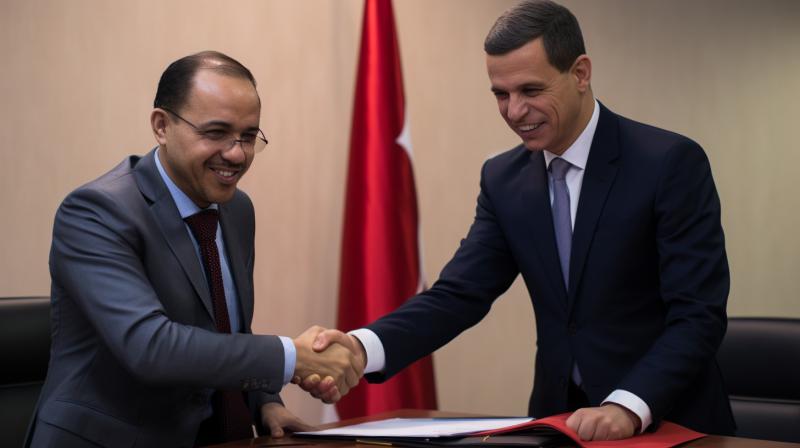
Morocco and the Hashemite Kingdom of Jordan have signed two landmark agreements aimed at deepening their collaboration in the judicial and legal fields, in a move that underscores the strength of their long-standing bilateral ties.
The agreements were signed on Sunday evening in the Jordanian capital, Amman, reflecting a shared commitment by both nations to enhance cooperation in justice and law enforcement.
The first agreement focuses on mutual legal and judicial assistance in criminal cases, enabling closer coordination in investigations, prosecution, and the exchange of critical information between the two countries.
The second agreement establishes a framework for the transfer of individuals serving custodial sentences, ensuring that such transfers are conducted in accordance with both countries’ national legal systems and relevant international conventions.
Officials said the deals are designed to streamline legal processes, improve the implementation of judicial decisions, and facilitate the extradition of fugitives. They also aim to strengthen efforts to uphold justice and safeguard public security in both Morocco and Jordan.
The signing marks a new phase in the historical and strategic partnership between Rabat and Amman, highlighting their shared commitment to building robust legal institutions and exchanging expertise.
The agreements are also expected to support broader legal reforms, contribute to sustainable development, and improve the investment climate in both countries.
Beyond their technical significance, the accords reflect the deep-rooted fraternal ties between His Majesty King Mohammed VI of Morocco and His Majesty King Abdullah II Ibn Al Hussein of Jordan. They also demonstrate a united political will to enhance cooperation in combating crime and reinforcing the rule of law.
The strengthened judicial partnership is seen as a significant step toward further integration between the two nations, laying the groundwork for future collaboration in governance, legal modernization, and regional security.



